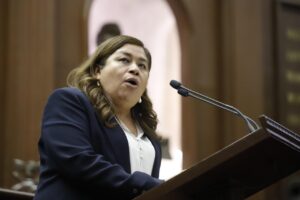This allows traders to gain experience and confidence in the market without risking a significant amount of capital. Different currency pairs and brokers offer different contract sizes. Some cityindex.com review brokers offer nano lots (100 units) and micro lots (1,000 units) for small account sizes. The contract size for futures, options, stocks, commodities, and other instruments can vary.
Understanding how your broker and trading style affect the lot you use is one of the first things that you should learn in trading. This is great in theory, but what does it mean in live trading? Well, it might be easier to think of lot size in terms of profit/loss per pip.
Note that the contract size determines the pip value for each currency pair, which is essential for calculating your profit and loss. Forex trading involves buying and selling currency pairs in the foreign exchange market. As a trader, you need to understand the concept of contract size, which is a fundamental aspect of Forex trading. A contract size refers to the standardized number of units of currency that are being traded in a particular Forex transaction.
What is a contract size in forex?
Standardizing contract sizes makes the trading process more streamlined and ensures that contracts are consistent with others in the market. For instance, all oil futures contracts contain 1,000 barrels of crude. Derivatives are financial contracts that are based on the price of some underlying asset. These assets can include but are not limited to stocks, bonds, commodities, and currencies. For instance, a derivative transaction can occur directly between banks in a practice called over-the-counter (OTC) trading rather than through a regulated exchange.
- In forex, contract size refers to the amount of currency that is being traded.
- Understanding how your broker and trading style affect the lot you use is one of the first things that you should learn in trading.
- The reader bears responsibility for his/her own investment research and decisions.
If you’re starting or have a small account, stick with micro or mini lots. But always ensure you understand how much you could lose if the trade doesn’t go your way. In conclusion, understanding contract size is a fundamental aspect of forex trading. It determines the amount of currency being traded and affects the value of each pip movement. Traders should carefully consider contract sizes based on their risk tolerance, capital availability, and trading strategy. Starting with smaller contract sizes can be beneficial for beginners, as it allows them to learn and practice without exposing themselves to excessive risk.
Contract size = Lot size x Base currency exchange rate x Base currency margin requirement
Forex trading, short for foreign exchange trading, is the buying and selling of currencies on the global market. It is a highly liquid and decentralized market where traders can speculate on the price movements of various currency pairs. One important concept that every forex trader must understand is contract size. Determining the ideal contract size for your trades based on your account size is essential as a forex trader. The contract size refers to the number of currency units in a standard lot and allows you to control how much currency you buy or sell. A mini lot represents 10,000 units of the base currency being traded.
The fact that contracts are standardized to specify contract size can be a benefit as well as a drawback for traders. CFDs are complex instruments with a high risk of losing money rapidly due to leverage. Between 74-89% of retail investor accounts lose money when trading CFDs. You should consider whether you understand how CFDs work and whether you can afford to risk losing your money.
Standardizing comes through expiration dates, delivery methods, and contract sizes. Another mistake was not understanding how the contract size affects my pip value. The pip value is how much each pip of movement is worth in a currency pair.
How Contract Size Affects Your Pip Value and Risk
Therefore trading standard lots are accessible for most of the investors. For those who cannot deposit large amounts of funds, many brokers are offering Micro account types where traders can place orders using the Micro and Mini lots. I usually trade mini lots since the smaller sizes allow me to manage my risk better.
Success in forex trading depends on a solid understanding of market trends, analytical tools, and other key factors. A lot is defined as a unit of the transaction size used in trading and is one of the important elements of risk management. The size of the transaction or the lot value changes from one Luno exchange review market or security to another. But if you will be risking more than 100 pips, then it’s better to go with a nano lot account. To find out the correct lot size to use on each, you can use a lot size calculator like this one. Keep in mind that the value per pip will vary by broker and currency pair.
The lot size you choose depends on your account size, risk management strategy, and experience level. Larger lots mean higher risks but also potentially bigger rewards. As your plus500 review account grows and you gain more experience, you can trade larger lot sizes. Each standard lot traded in the Forex market is the equivalent of 100,000 (of the base currency).
When you place a trade on your broker’s trading platform, you’ll select the lot size in a dialogue box next to the currency pair. Micro lots are even smaller than mini lots, which are 1,000 units. Micro lots are perfect when you’re just starting with forex trading or want to test a new trading strategy with minimal risk. For a forex trader, understanding the contract size is crucial to leverage their position and manage their account effectively in the forex market. Lot is also known as a contract size and is how securities are generally traded.
The contract size also helps clarify the obligations of traders. John Leonardo invests and trades in Forex and Crypto regularly. He has been trading for over 15 years and enjoys learning new methods of trading that he passes on to others. He has tried all sorts of methods and systems, discerning what works from what doesn’t. He presently trades a managed account as well as his own funds.He follows the news using such professional resources as financialsource.io and Bloomberg.




